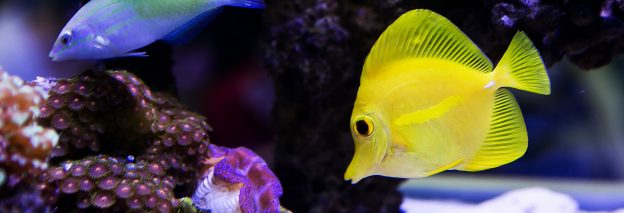All corals are beautiful. Once you really look past the pretty, colorful surface, however, you’ll see some of them have a dark side. Reef tanks need corals for many reasons, but choose your corals carefully. There are many toxic corals that can endanger not only the other inhabitants in the aquarium, but humans as well.
Among the most lethal beauties are some species of zoanthid corals.
Zoanthid corals are popular for reef tanks, but they are also notorious for what’s known as palytoxin poisoning.
Imagine a skunk. Its appearance is charming in a way, but if it feels threatened, you know what will happen. In fact, the whole neighborhood will know.
The same concept applies to certain species of zoanthid corals. When they feel threatened, they let out a toxin that is potentially lethal to humans. It might not smell so bad, or at all, but it’s poisonous nonetheless.

There have been several cases of palytoxin poisoning from zoanthid corals around the world. In humans, palytoxin can cause a severe respiratory reaction, and it can burs skin and eyes on contact.
In fact, the Atlanta-Journal Constitution publication reported that an entire family became ill after the mother used a toothbrush to scrap off some algae on the coral in her saltwater aquarium.
When she brushed the coral, it released palytoxin, one of the deadliest poisons known to man, into the air. Within an hour, everyone in the household had what was described as flu symptoms, but worse. They were hospitalized, and five of the fish in the tank died.
The poisons exist in the coral as protection from predators in nature. According to researchers, just one gram of the poison can kill 100 mice. In humans, palytoxin can cause a severe respiratory reaction, hemorrhaging, and death if ingested, and it burns skin and eyes on contact.
There have been several cases of palytoxin poisoning from zoanthid corals around the world.
For that reason, you should avoid handling potentially toxic corals with your bare hands. If you must handle them, wear protective gloves and a face mask. Otherwise, let them be, or choose a different kind of coral for your saltwater reef tank.





